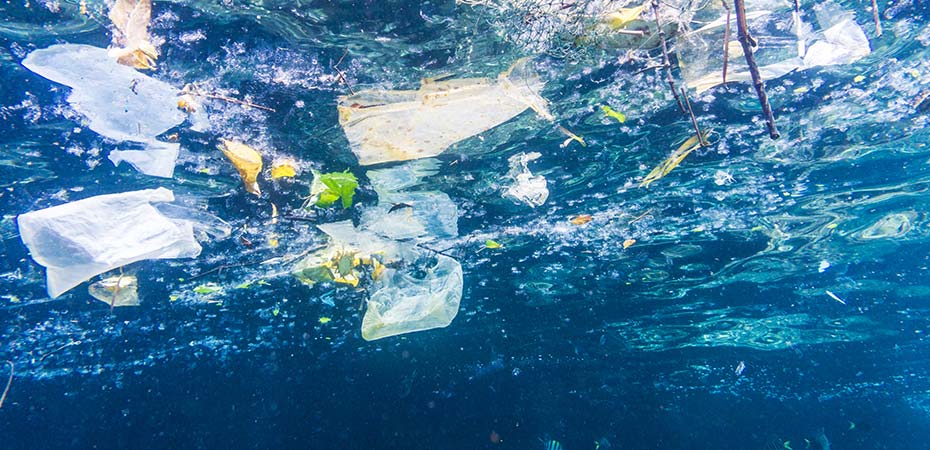The UK Government recently announced its plans to ban plastic straws and other single-use plastics from sale next year in a bid to tackle the growing issues that they are causing in seas and rivers.
The announcement follows the UK’s ban of microbeads at the beginning of the year and the introduction of the plastic bag charge in retail. Since introducing the plastic bag charge, the Department for Environment, Food and Rural Affairs (Defra) has reported that 9 billion fewer plastic bags have been distributed.
The government is set to work with industry to develop new initiatives to overcome the problem. Michael Gove, the Defra secretary, stated: “It is only through government, business and the public working together that we will protect our environment for the next generation”.
Businesses are now beginning to address the issue, with several restaurant chains now stating that they are set to move away from plastic straws and look at paper alternatives. Businesses in food, drink and retail industries are set to be the most affected by the changes in legislation regarding single-use plastics due to their heavy use in packaging.
Why are single-use plastics being banned?
Single-use plastics are items that are used only once before they are thrown away or recycled. Items often include things like plastic bags, coffee stirrers, food packaging and, of course, plastic straws.
Since the 1950s, 8.3 billion tonnes of plastic have been produced. Recycling systems can no longer keep up with the demand for single-use plastic and the escalated leakage into the environment has led to the prediction that, without remedial action, by 2050 there will be more plastic in our oceans than fish.
Plastic fibres are beginning to be found in the stomachs of marine life and even in tap water. Plastic waste has become hugely damaging to both land and sea.
How would a ban on plastics affect the food and drink industry?
When we think of single-use plastics, the first things that will come to mind will be the items that we throw away regularly, such as food containers and water bottles.
With the increasing focus on the damage that plastics are causing to our environment, we are likely to see changes in the future about how food and drink are packaged. Businesses operating in this industry will need to consider how to adapt to meet these changes and how it will affect their supply chain.
Initiatives such as the “plastic-free” trust mark highlight how the mindset of the food and drink industry is beginning to change. The trust mark is awarded to food and drink products that are packaged without plastic. The concept is that it will help to advise consumers who desire to make ethical choices with their purchases. The trust mark has already been adopted by the supermarket chain Iceland as well as other retailers.
As campaigns against single-use plastic continue and the government enters into further consultations regarding the matter, it is likely that consumers will also begin to be more environmentally conscious about their purchases. Food and drink brands will need to begin to take this into account both with their packaging and their marketing to ensure that they are still relevant to their audiences. A growing number of zero-waste shops are entering the market and beginning to compete with the established brands.
In terms of packaging, the supply chain to the food and drink industry will also need to play a part and adapt to any future changes to UK legislation. If plastic straws are to be banned, then manufacturers will need to consider more environmentally friendly alternatives such as paper for single-use instances and metal for long-term use at home.
Some businesses in the food and drink industry are beginning to implement innovative alternatives to single-use plastic and are putting incentives in place for their customers to get involved. For example, coffee shop chains are increasingly beginning to implement re-fillable cup discount schemes to encourage customers to not continuously have single-use cups.
How can the food and drink industry ensure they are complying with environmental legislation?
Businesses operating in the food and drink sector are likely to see future legislative changes that will affect how they package and distribute their goods. Forward-thinking companies should begin looking at their use of plastics and understand where changes could be made so that they are not damaging the environment and be able to still serve their customers.
The plan to ban plastic straws will have an impact on how many businesses in the food, drink and retail industries provide their goods and services. Our Insights and Resources are recommended for businesses wanting to keep up-to-date with the latest in UK legislation. We will update you regularly with information from our legal experts in the food and beverages sector, as well as other sectors and services you may be interested in.
About the author(s)
Gowling WLG is an international law firm operating across an array of different sectors and services. Our LoupedIn blog aims to give readers industry insight, technical knowledge and thoughtful observations on the legal landscape and beyond.

